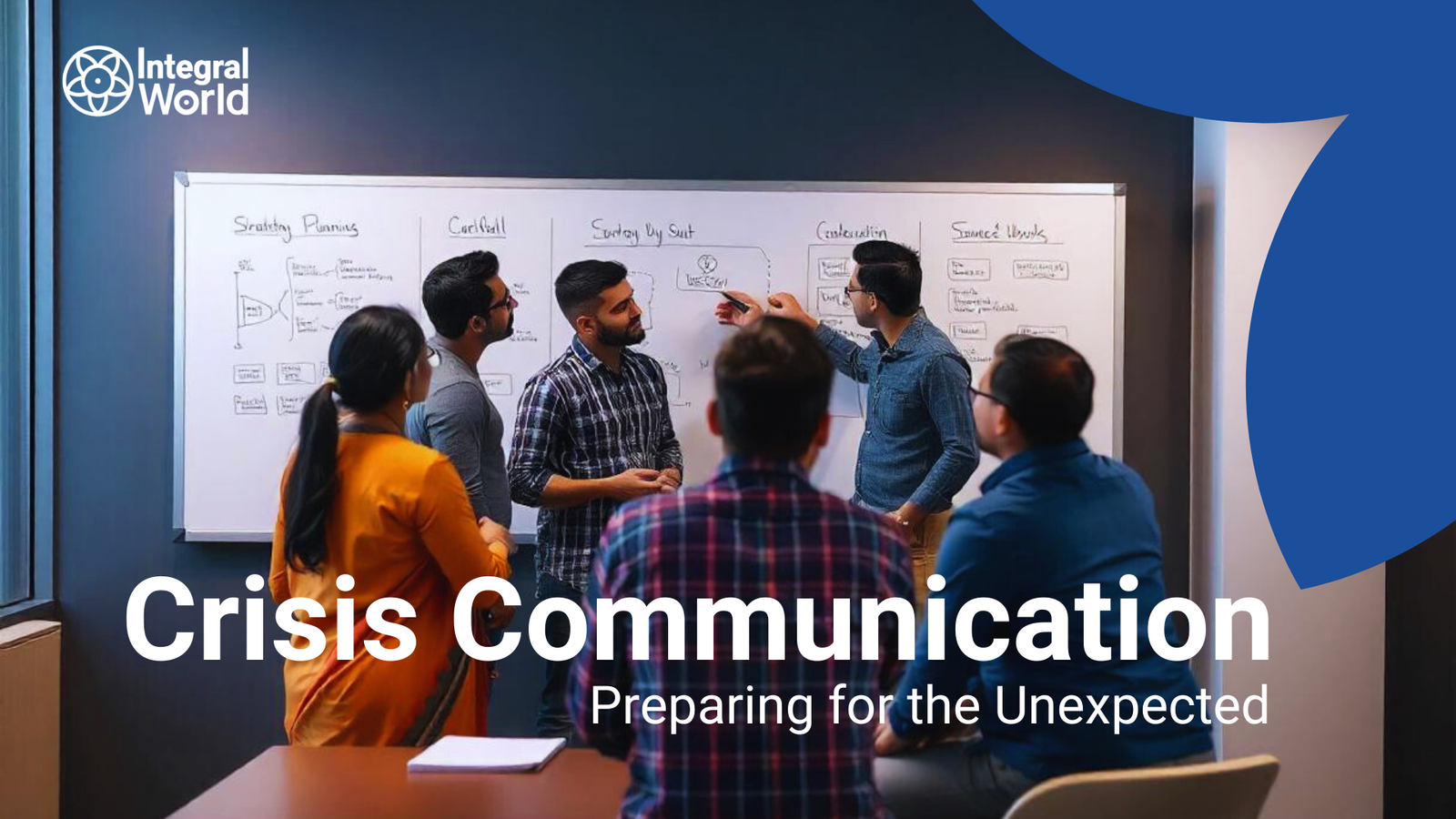Organizations must be ready to navigate through crises effectively. Whether it’s a natural calamity, a public relations issue or a global pandemic, how an organization communicates during moments of crisis can greatly influence its reputation and operations. At Integral World, we appreciate the significance of proactive crisis communication as a foundation for sustainable and holistic development.
Think about your company hit by a crisis – sudden changes that not only disrupt daily operations but also jeopardize your hard-won reputation and relationships with stakeholders. How you react will define the future of your organization in these defining times. This part focuses on proactive measures and strategic approaches that help organizations endure any storm as far as communication is concerned.
Understanding Crisis Communication
Crisis communication is more than just reacting when disaster happens; it is having a plan in place to mitigate risks and manage the aftermath. As Peter Drucker once said, “The greatest danger in times of turbulence is not the turbulence itself, but to act with yesterday’s logic.” In crisis communication this statement rings true—a clear plan at hand makes all the difference.
Importance of Preparation
Effective communication hinges on prior planning. Benjamin Franklin once said, “By failing to prepare, you are preparing to fail.” Organizations that invest in pre-crisis readiness are better able to respond quickly and confidently when confronted with unforeseen difficulties. These preparations entail:
Risk Assessment: Identifying potential risks and vulnerabilities peculiar to your organization.

- Crisis Management Team: Having an integrated team mandated with handling crises through communication.
- Communication Protocols: Setting up established channels and procedures for different crises types.
- Training and Simulation: Conducting regular training exercises and simulations meant to prepare your team for real life situations.
Strategies for Effective Crisis Communication
During moments of crisis, communication should be timely, open and compassionate. Warren Buffett once stated that it takes twenty years to build trust but it can take five minutes only to destroy it all within one swift act. In this regard, trust is built through:
- Timely Response: Responding quickly to the crisis, acknowledging the situation, and giving updates as they unfold.
- Transparency: Being open and transparent about what has happened including any mistakes made and steps being taken to rectify them.
- Empathy: Exhibiting empathy towards those affected by the crisis whether they are employees, customers or the community at large.
Shareable Quotes
Below are some quotes from famous figures who truly understand the meaning of crisis communication:
“In the midst of chaos, there is also opportunity.” — Sun Tzu
“It is not the strongest of species that survive nor the most intelligent but rather those most responsive to change.” — Charles Darwin
Conclusion
To conclude on this note, crisis communication does not remain a reactive measure but a proactive strategy that companies have to adopt so as to protect their reputation and define their values. At Integral World we advocate for preparedness transparency and empathy in crisis communication.
To know more about how we can aid your organization in developing a strong crisis communication strategy or to get involved with our next venture on promoting sustainable and holistic development please contact us today


Comments are closed for this article!